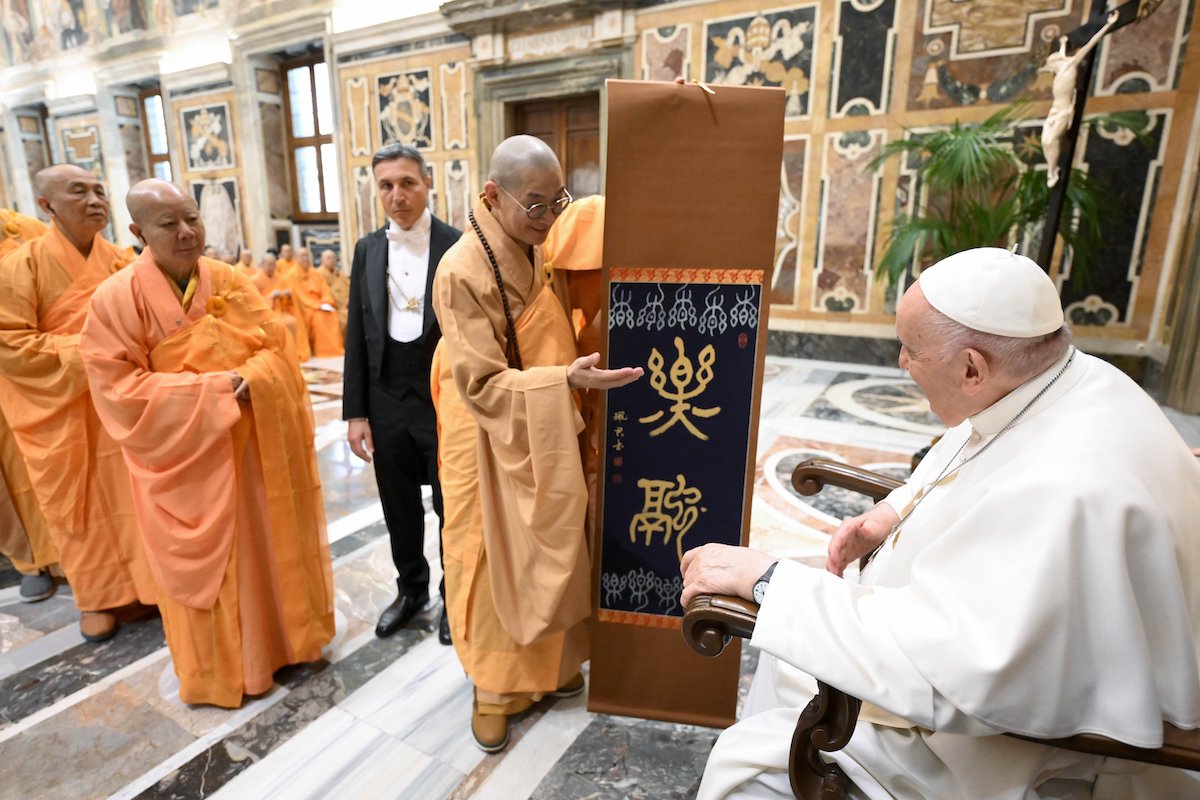By Carol Glatz, Catholic News Service
VATICAN CITY (CNS) — Places that serve as “oases of encounter” are needed today so that visitors can be inspired to live wisely and well, Pope Francis told representatives of a Buddhist organization.
The world today is marked by rapid changes that affect humanity and the planet, and the pace of life and work has intensified, he said in an address to delegates from the United Association of Humanistic Buddhism based in Taiwan.
“This reality also affects religious life and culture and calls for a fitting formation and education of the young in timeless truths and in tested methods of prayer and peace-building,” he said during an audience at the Vatican March 16.
“Throughout history, religious believers have created sacred times and spaces as oases of encounter, where men and women can draw the inspiration needed to live wisely and well,” the pope told his guests.
“Such oases of encounter are even more necessary in our time,” he added.
The pope expressed his condolences for the death Feb. 5 of Venerable Master Hsing Yun, who was a Chinese monk and teacher based in Taiwan, founder of the Fo Guang Shan Buddhist monastic order and a major leader in the humanistic Buddhist movement which seeks to integrate Buddhist practices into everyday life.
“He was also a master of inter-religious hospitality,” the pope said about Master Hsing, who had met St. John Paul II in 1997 and Pope Benedict XVI in 2006.
The group’s “educational pilgrimage” to Rome, Pope Francis said, represents an opportunity to promote “the culture of encounter, in which we take the risk of opening ourselves to others, trusting that we will discover in them friends and brothers and sisters, and in the process learn and discover more about ourselves.”
“An inter-religious educational pilgrimage can be a source of great enrichment, offering multiple opportunities for us to encounter one another, to learn from one another and to appreciate our various experiences,” the pope said.
“The culture of encounter builds bridges and opens windows to the sacred values and convictions that inspire others,” he said. “It tears down the walls that divide people and keep them prisoners of preconceptions, prejudices or indifference.”







